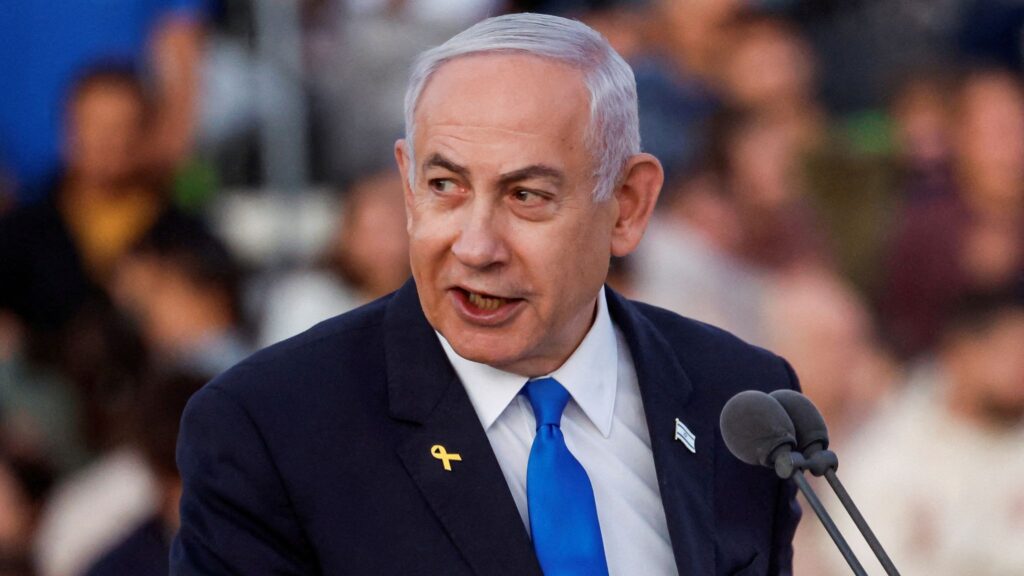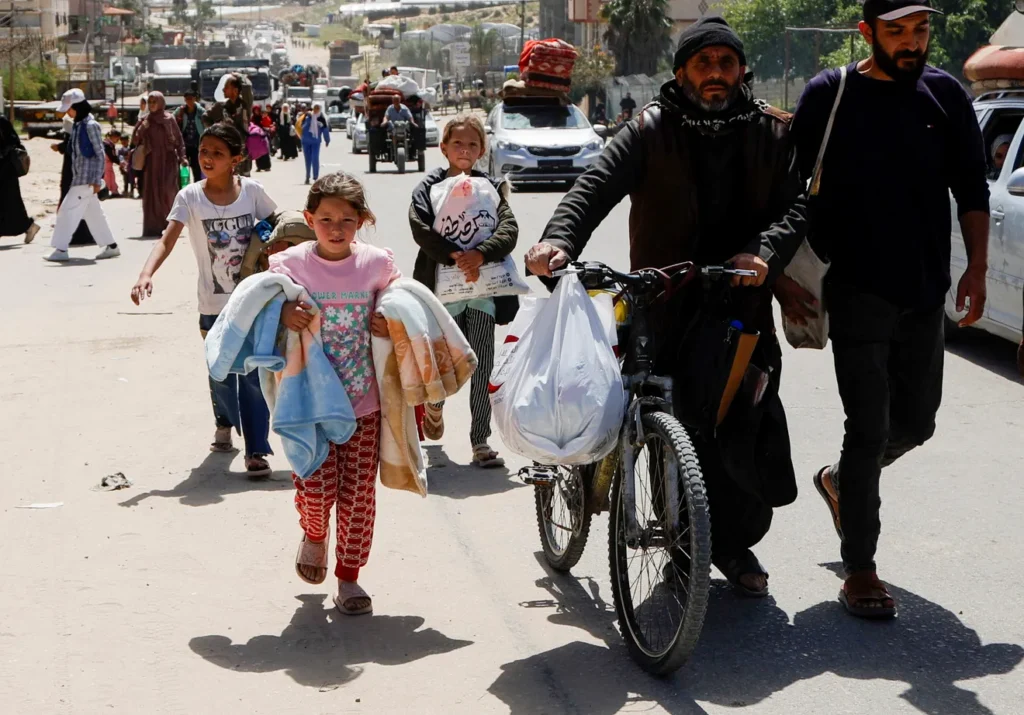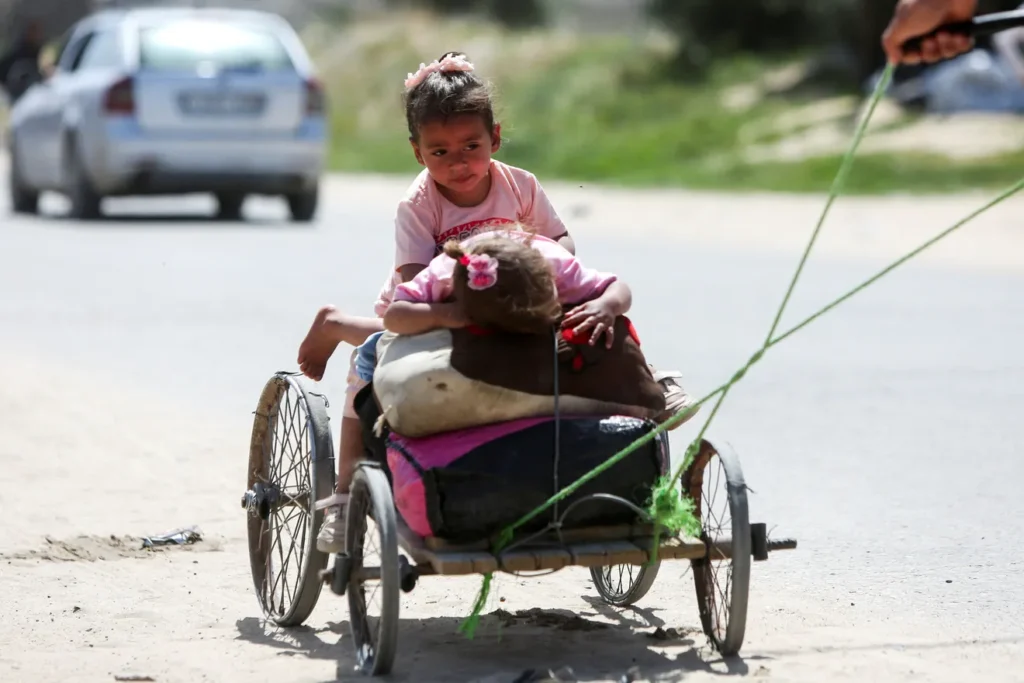JERUSALEM — Israeli Prime Minister Benjamin Netanyahu has announced an expanded and “intensive” military operation to seize full control of the Gaza Strip, a dramatic escalation in the months-long war against Hamas. The decision, confirmed by Israeli officials, follows the breakdown of ceasefire negotiations and comes as President Donald Trump prepares for a high-profile visit to the Middle East.

The operation, reportedly approved by Israel’s security cabinet, is expected to unfold gradually over several months and could see the Israeli military take over all of Gaza. Netanyahu said the new offensive aims to push more Palestinians south “for their own safety” while eliminating Hamas’s grip on humanitarian aid. “This will not be a hit-and-run operation,” Netanyahu said in a May 5 video statement, suggesting Israeli forces will remain on the ground in areas they capture.
Israeli troops already occupy roughly a third of the Gaza Strip, where they have established surveillance posts and “security zones.” Under the expanded plan, those zones will be solidified and expanded across the enclave. One senior Israeli official said the goal is to move Gaza’s population further south and cut Hamas off from aid supplies.
Currently, international aid groups and U.N. agencies coordinate the distribution of humanitarian relief in Gaza, but Israeli officials said private contractors will take over the process, with aid redirected to the Rafah region near Egypt. Israel has accused international groups of failing to prevent Hamas from seizing supplies meant for civilians.
The timing of the offensive remains closely tied to Trump’s diplomatic visit. A senior Israeli defense official said no action will begin before the visit concludes and that a “window of opportunity” remains for a ceasefire and hostage release deal. “If there is no hostage deal, Operation Gideon Chariots will begin with great intensity and will not stop until all its goals are achieved,” the official said.
Israel resumed its offensive in March following the collapse of a U.S.-brokered truce. Since then, it has imposed a blockade that aid agencies warn has brought Gaza’s 2.3 million residents to the brink of famine. The United Nations has sounded repeated alarms over the humanitarian catastrophe.

Hamas has rejected the Israeli strategy, demanding a complete ceasefire, total withdrawal of Israeli forces, full reconstruction of Gaza, and a mutual release of prisoners. “No deal except a comprehensive one,” said senior Hamas official Mahmoud Mardawi, rejecting what he called “pressure and blackmail.”
Israel’s lack of a post-war vision for Gaza has drawn scrutiny from both international observers and domestic critics. While government ministers have pressed for sidelining the U.N. and other global NGOs in favor of Israeli-managed aid systems, aid leaders have pushed back. On Monday, Jan Egeland, head of the Norwegian Refugee Council, confirmed Israel has demanded the shutdown of current aid distribution operations in Gaza.
Hardline members of Netanyahu’s coalition, including Finance Minister Bezalel Smotrich, have welcomed the new plan as a path to permanent Israeli control of Gaza. “We are finally going to conquer Gaza. We are no longer afraid of the word ‘occupation’,” Smotrich declared during a virtual pro-settler conference.
Yet public sentiment in Israel appears to be shifting. A growing number of Israelis are demanding a deal to bring home the 59 remaining hostages held in Gaza. Demonstrators clashed with police outside parliament this week, with relatives of the hostages expressing frustration at the government’s strategy. “All the families are tired,” said Ruby Chen, whose son was killed in the October 7 Hamas attack. “This new maneuvering brings no guarantee.”

That attack — in which 1,200 people, mostly civilians, were killed and 251 taken hostage — triggered Israel’s military campaign. Since then, more than 52,000 Palestinians have died, according to Gaza health authorities, and vast sections of the territory have been reduced to rubble.
Despite mounting international criticism, Israeli military leaders have begun calling up tens of thousands of reservists to prepare for an expansion of operations in Gaza. Chief of Staff Lt. Gen. Eyal Zamir has reportedly pushed back against proposals to halt all aid, warning the government that humanitarian access must resume soon. Still, a government spokesperson insisted that the purpose of the reserve mobilization is to widen military activity, not to establish long-term occupation.
Israel now faces mounting security pressures beyond Gaza, including missile threats from Iran-backed Houthi rebels in Yemen and growing instability in neighboring Syria and the West Bank. Whether Israel can sustain an open-ended military operation in Gaza amid these broader challenges remains uncertain — especially as the international community calls for de-escalation and humanitarian access.


